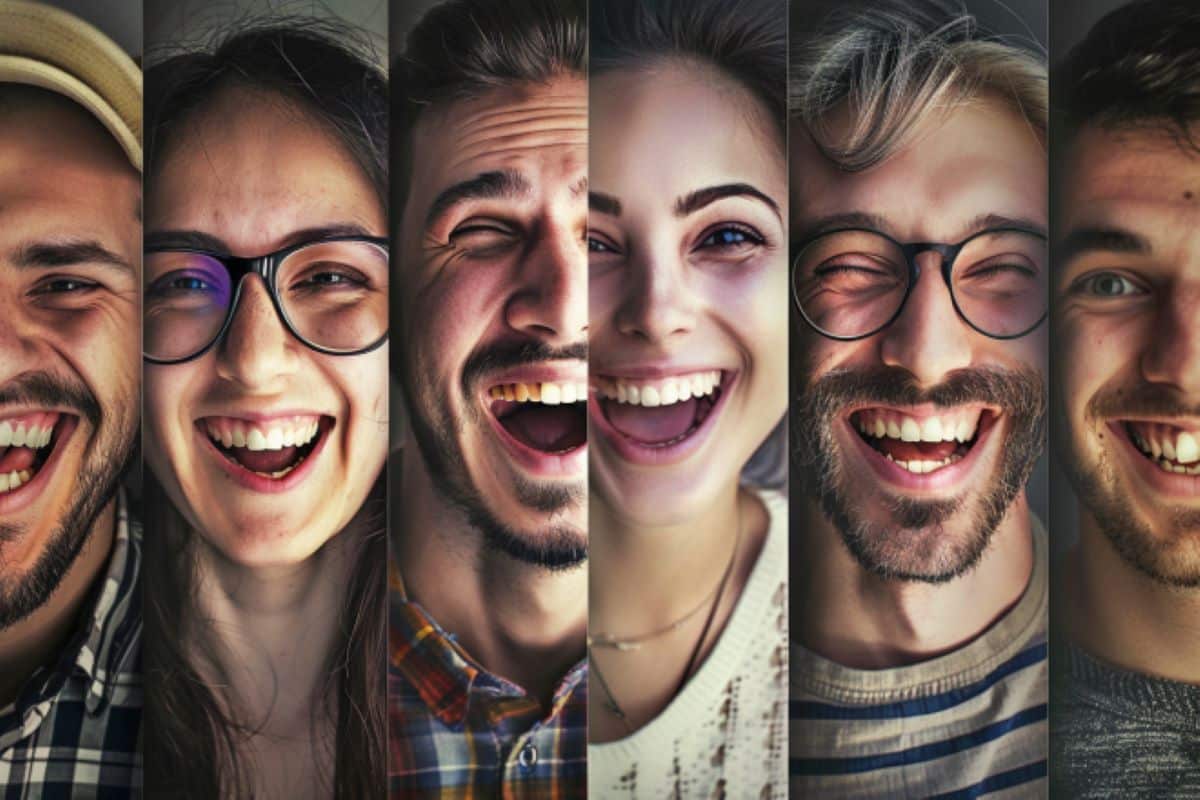Summary: Humans may have evolved complex facial expressions to enhance social bonds. Analyzing over 1,500 natural conversations, the study found that expressive personalities were more liked and better at achieving social goals.
Expressive participants were easier to read and more successful in negotiating conflict. This suggests that facial expressiveness plays a crucial role in human social interactions and relationship building.
Key facts:
- Expressive individuals are more liked and better at achieving social goals.
- The study analyzed over 1,500 natural conversations to assess facial expressiveness.
- The results show that complex facial expressions help people build stronger social bonds.
source: Nottingham Trent University
An analysis of more than 1,500 natural conversations suggests that humans may have evolved more complex facial muscle movements to help us connect with one another.
In the first part of the study, the researchers posed as participants in semi-structured video conversations with 52 people to record natural reactions and expressions during various everyday scenarios.
Conversations are designed to involve a range of behaviors including listening, humor, embarrassment, and conflict. To test their ability to suppress facial expressions, participants were also asked to keep their face still while their partner tried to get them to move.
The same people later recorded short videos of their face while trying to achieve social goals such as appearing friendly, appearing threatening, and disagreeing without being disliked.
More than 170 people were then shown clips from a selection of video conversations and recordings and asked to rate the emotions and expressions being conveyed to see how “readable” the participant was, as well as how likable they were.
Each participant’s facial expressiveness was calculated using FACS (Facial Action Coding System), a method of measuring facial muscle activity.
To test the findings on a larger scale, the researchers conducted a follow-up analysis of unsigned video conversations between 1,456 strangers from an existing data set, where the conversation partners rated how much they liked each other.
Likeability ratings were analyzed in relation to FACS scores and other recognized measures, and the researchers found that expressive participants were liked more by both the independent raters and their conversation partner.
They were also found to be easier to read and better able to adapt their facial behavior to achieve social goals.
In the conflict scenario where participants were offered a bad deal in terms of paying a reward for the study, those who were both agreeable and expressive in their negotiations performed better.
Dr Eithne Kavanagh, research fellow and lead author of the study at NTU’s School of Social Sciences, said: “This is the first large-scale study to examine facial expression in real-world interactions.
“Our evidence shows that facial expressiveness is associated with positive social outcomes. This suggests that more expressive people are more successful in attracting social partners and building relationships. This can also be important in conflict resolution.
The work is part of a project funded by the European Research Council led by Professor Bridget Waller of NTU. Individual Differences in Facial Expression: Social Function, Facial Anatomy, and Evolutionary Origins (FACEDIFF) is an interdisciplinary project investigating the evolution of facial expression and how this leads to benefits or costs in an individual’s social engagement.
Professor Waller said: “This research is important from an evolutionary perspective as it may explain why humans have evolved more complex facial expressions than any other species – it helps us form stronger bonds and orient ourselves more well in the social world.’
About this social and evolutionary neuroscience research news
Author: Helen Brice
source: Nottingham Trent University
Contact: Helen Brice – Nottingham Trent University
Image: Image credit: Neuroscience News
Original research: Free access.
“Facial Expression Is Socially Advantageous” by Eithne Kavanagh et al. Scientific reports
Summary
Being facially expressive is socially advantageous
Individuals differ in the way they move their faces in everyday social interactions. In the first large-scale study, we measured variation in dynamic facial behavior during social interaction and examined dyadic outcomes and impression formation.
In Study 1, we recorded semi-structured video conversations with 52 participants interacting with a confederate in a variety of everyday contexts.
The videos were rated by 176 independent participants. In Study 2, we examined video conversations of 1,315 participants engaged in unstructured video conversation interactions.
Indices of facial expressiveness were derived using automated analysis of the facial action coding scheme, and measures of personality and partner impressions were obtained by self-report.
Facial expressiveness varied significantly across participants but little across context, social partners, or time.
In Study 1, participants with more expressive facial expressions were more likable, more agreeable, and more successful in negotiations (if also more agreeable). Participants who were more face-competent, legible, and perceived as legible were also more liked.
In Study 2, we replicated the findings that facial expressiveness was related to agreeableness and liking of their social partner and further found that it was related to extraversion and neuroticism.
Findings indicate that facial behavior is a stable individual difference that offers social advantages, pointing to an affiliative, adaptive function.



